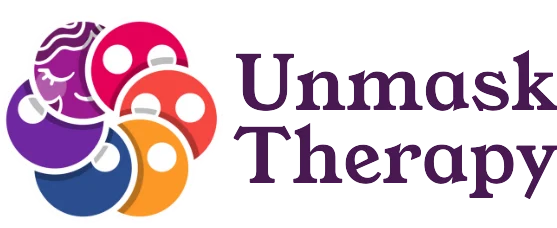Neurodivergent Counselling in Melbourne
ADHD-Affirming, Neurodiversity-Aware Therapy for Real Life
Tired, overwhelmed, or feel like everyone but you got a "how to" guide to life?
Running away and becoming a forest creature might feel like the only way to escape your exhaustion. Whether you’re newly diagnosed and trying to reframe your entire life, or have known for a long time but the tools you use no longer work, you’re searching for more than just “try harder.”

Neurodivergent counselling isn’t about “fixing” how your brain works or making you more “normal”. It’s about exploring what you want and need for your happiness, and what needs to change to help you reach it.
You might have noticed that the strategies that work for others haven’t been effective for you, or that you’ve been saying “I’ll sort it out once things quiet down” for months, yet it never actually gets any quieter. Maybe your chores, tasks, and emails are becoming overwhelming, or you’re thinking about quitting your job because you just can’t cope.
There used to be some breathing room between the bad days, but now…
- Worry invades every spare thought
- You’re not sleeping, or sleeping all the time
- You got all the tools, alarms, and plans, but nothing helps
- Those “gifted child to burnout pipeline” memes aren’t so funny anymore
If that sounds familiar, you’re not alone. Neurodivergent counselling in Melbourne enables you to understand why things feel this way and gives you strategies that work with your brain — not against it.
Try out support that’s designed for you
- Together we’ll create a space where you can drop the mask, stop performing, and finally feel seen.
- Learn about Neurodivergence from an insider perspective, instead of outcome-based guesses
- Discover how your life impacts your brain so that you can make informed choices
- Hear about other people’s strategies, and build your own based on your unique circumstances
- Try out a “neutral” perspective on neurodivergence: not a fatal flaw, not a superpower, just another way to be with its own highs and lows


ADHD- and Autism-Affirming Counselling in Melbourne
At Unmask Therapy in Melbourne, I provide in-person and online counselling for adults who identify as neurodivergent or suspect they might be.
Our sessions are flexible, collaborative, and grounded in acceptance. That might mean slowing down, taking breaks, or communicating in ways that feel safe for you. There’s no pressure to “fit in” — just space to explore how your brain operates and what helps it thrive.
Whether you’re dealing with ADHD burnout, sensory overload, or feeling like you’re “too much” or “not enough,” therapy can help you build clarity and self-acceptance.
Why Choose Unmask Therapy
Unmask Therapy was founded to offer neurodiversity-affirming counselling in Melbourne that feels human, warm, and real.
Felix has 9 years of experience supporting neurodivergent adults and understands the science and the lived experience of what it’s like to exist in a world that isn’t built for your brain.
My work combines:
- Lived experience and professional training
- Gentle humour and practical tools
- Person-first, trauma-informed, and inclusive care
Combine lived experience with community knowledge and professional care, while valuing self-awareness, creativity, and empathy. Whether you’re in Melbourne or joining online, sessions are safe, flexible, and collaborative.
What to Expect in a Neurodivergent Counselling Session
You don’t need to prepare or know exactly what to say. We can start with a chat about what’s been hard and what you’d like to be different.
Here’s how we usually work:
We talk briefly about what you’re looking for and if I'm the right fit for you.
We unpack your experiences, habits, and sensory needs at a comfortable pace.
We create real-world strategies for things like focus, organization, communication, and relationships.
We review what’s working and adjust together — no rigid plans or pressure.
Both in-person sessions in Melbourne and online Australia-wide appointments are available.
Common Topics
Figuring out how your brain works and how to achieve your goals while also trying to juggle your responsibilities can feel overwhelming – it felt overwhelming just writing it. So getting support can take some of the pressure off of you to do it all by yourself, while still being in control of the process. And you could use a bit less pressure and a bit more control.
How Neurodivergent Brains work
Neurodivergence looks different for each of us because our brains are unique, and so is our history. That’s why counselling is a personalised process of figuring out what things are like for you, what’s working, and what isn’t, then making new choices.
Together we can:
- Explain why certain tasks feel impossible to start, and ways to get around them
- Understand “executive dysfunction” – what it means, what it looks like for you, and what to do about it
- Notice when your diagnosis has been a neutral, or positive part of your life – problem solving, creativity, and “big picture” thinking are common!
- Use support, self-knowledge, and creativity to work with your brain, instead of against it, and regain the energy to live the life you want
It’s not about “fixing” yourself — it’s about creating a life that fits you.

Understanding Executive Dysfunction & Burnout

If you’ve ever said, “I know what to do, I just can’t do it,” you’ve met executive dysfunction. It’s not laziness or lack of effort — it’s how your brain’s energy and decision-making systems work differently.
Counselling helps you recognise patterns behind these struggles and build practical strategies.
- Breaking down overwhelm into manageable steps
- Using structure and rest instead of constant urgency
- Learning pacing to prevent burnout before it hits
Over time, you’ll learn to manage life with more clarity, not through force, but through understanding.
How Growing Up Different Can Impact How You See Yourself
Growing up neurodivergent can mean being held to different standards and expected to think and work in ways that don’t come naturally to us. If we can’t do this, we can start to feel a lot of anger, sadness, and shame towards ourselves, and carry those feelings throughout our lives.
This can take the form of:
- Believing you’ll never succeed because things have always been so hard
- Intense perfectionism that can turn into a paralysing fear of trying new things or getting anything wrong
- “Late Diagnosis Grief” that comes from reflecting on the life we could have had if we had the right kind of support much earlier
- Intense masking leading to not knowing who is underneath the mask, because of how hard you always tried to be the “right” kind of person.
You’re not bad, or wrong, or lazy; things really were harder. They still are, but believing that it’s not just a “you” problem can help to make them easier.

How Counselling Helps You Thrive
You don’t have to keep running on empty. With the right support, you can build a calmer, more balanced way of living.
Therapy can help you:
- Understand your neurodivergent traits without shame
- Create sustainable routines that match your energy
- Improve emotional regulation and self-compassion
- Build stronger relationships and communication
- Manage burnout and perfectionism in a realistic way
It’s not about becoming “neurotypical.” It’s about finding ease, confidence, and connection — exactly as you are
You’re not alone, and you’re not broken. Let’s work together to design the life that you can thrive in
Ready To Book a Session?
We offer neurodivergent counselling in Melbourne and online across Australia.
We’ll talk about what’s going on and how we can support you in a way that feels natural and sustainable.
Looking to book an appointment or free 15 minute phone consultation?
Felix is available Monday to Thursday from 10 am to 8 pm, and Sunday from 11 am to 5 pm.
You can also book a session online anytime through the calendar.
Frequently Asked Questions
Why are so many women being diagnosed now?
Historically, both Autism and ADHD were studied and diagnosed based on male-presenting traits, often overlooking how they manifest in women. Traits like inattentiveness, masking, and perfectionism—common in women—were frequently misunderstood or misdiagnosed. Increased awareness and advocacy have improved recognition and diagnosis for women.
Does ADHD mean I can’t focus on anything?
Not at all! People with ADHD often experience hyperfocus on tasks they find interesting or engaging. The challenge is regulating attention, not an absence of focus altogether.
What is executive dysfunction, and how does it relate to ADHD?
Executive dysfunction refers to difficulties with planning, organizing, starting, or completing tasks—common struggles for people with ADHD. It’s not about laziness; it’s about how the brain processes and prioritizes information.
Are neurodivergent traits overdiagnosed?
Research suggests ADHD and Autism are often underdiagnosed, especially in women, nonbinary individuals, and people from marginalised communities. Misunderstandings and stereotypes contribute to this issue.
What if I suspect I’m neurodivergent but don’t have a diagnosis?
A diagnosis can provide clarity, but even without one, exploring strategies and seeking professional support can help you better understand your needs and challenges.
A diagnosis will tell you if you fit the criteria for a condition, but it won’t tell you about your specific experience. If you want more personalized information, then an assessment or talking with a counselor or coach will be more useful.

